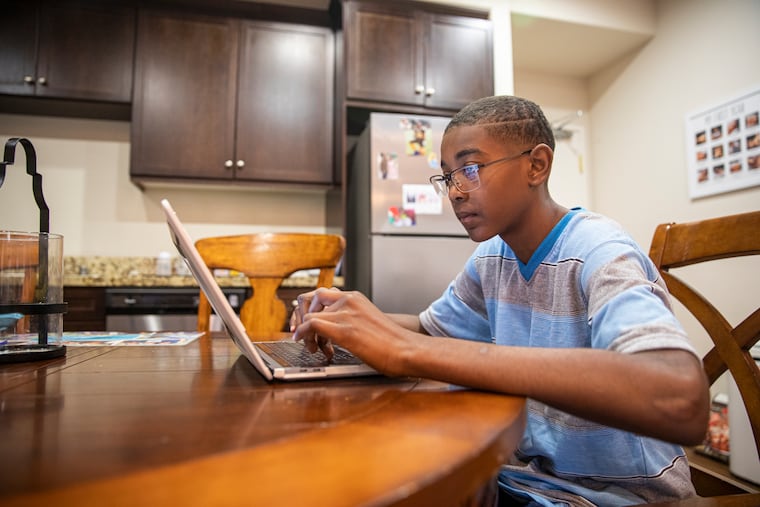An innovative approach to helping Philly kids process trauma | Opinion
A new model for how to deploy telehealth alongside school-based services to help children navigate trauma is being tested at Girard College and has the potential to help even more local students.

COVID-19. Gun violence. Homelessness. Domestic violence. Substance abuse. Family separation. These are just some of the traumatic experiences Philadelphia children face every day. In fact, almost half of U.S. children have experienced an adverse childhood experience (ACE), or a traumatic event that can have lifelong implications for health and well-being, and 11% of children are exposed to three or more ACEs, making them especially high risk. Black and Hispanic children experience ACEs at disproportionately higher rates, another example of the ways systemic racism impacts children of color from the day they are born.
Philadelphia has long worked to address adverse childhood experiences that lead to trauma, but the COVID-19 pandemic has proven the power and potential of telehealth. As we apply lessons from the past year and look toward a post-pandemic future, policymakers and community stakeholders should consider telehealth as a promising and accessible tool to help children process trauma and get support.
Childhood trauma can have lasting and profound impacts. Researchers developed the adverse childhood experience scoring system to help assess childhood trauma and better understand the correlation between traumatic events and health. Children with higher ACE scores may be more likely to have long-term health issues including obesity, diabetes, depression, and attempts at suicide. Additionally, higher ACE scores are thought to correlate with other negative outcomes including poor school performance and unemployment in adult years.
We see these impacts in our city every day. Young people who grow up in communities that have been overlooked for decades, whose parents struggle to find work that pays over Pennsylvania’s dismal minimum wage, who lose loved ones to gun violence and the criminal justice system, who sleep on couches because their parents cannot find affordable housing and are not able to sleep well, eat well, study without interruption, or often receive support to deal with these daily burdens. The accumulation of this kind of trauma can lead to toxic stress. Children, who are just starting to grow and develop, are particularly susceptible.
In Philadelphia, only 22% of children with a significant mental health condition receive treatment. That is where telehealth may offer an important new tool and an innovative approach in Philadelphia. A collaboration of Girard College, Children’s Hospital of Philadelphia, and the Independence Blue Cross Foundation may offer a model for how to deploy telehealth alongside school-based services to help children navigate trauma and overcome ACEs.
While the pandemic has exacerbated many mental health issues, it has also accelerated the use of technology to close the gaps in care, specifically through telehealth. Families with limited financial resources cannot always take time away from work, especially on a consistent basis, to make it to appointments or support groups. With telehealth, we can meet people where they are and on their schedule.
» READ MORE: Telemedicine doesn’t need to fade away after the pandemic | Expert Opinion
But while virtual care can be enormously effective in making health care easily accessible, children experiencing trauma require more holistic support. That is why this program is merging telehealth with a school-based approach that will provide resources to teachers, administrators, and school counselors to screen, identify, and better support students with mental or physical health needs.
In City Council, I have been focused on ensuring we are providing supportive resources to all Philadelphia children. For example, I worked with the School District to ensure there is conflict resolution programming for every student, starting this fall, and I supported their ongoing work to integrate additional behavioral health services as needed.
As we emerge from the pandemic and prepare for a return to in-person learning in a few short weeks, we ought to seize this opportunity to apply telehealth and school-based resources to better connect children with the clinicians and support they need. We all must do more for children — particularly for students of color — to ensure health equity and intervene early to prevent more serious and costly health conditions later.
Katherine Gilmore Richardson is currently serving her first term as an at-large member of Philadelphia City Council.